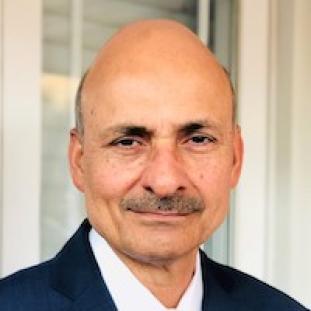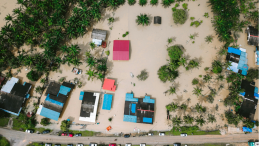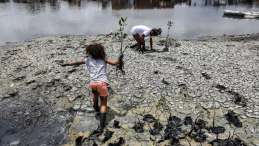Water scarcity is a critical challenge to sustainable development and a potential cause of social unrest and conflict between countries. Water scarcity also impacts traditional seasonal human migration routes and, together with other water insecurity factors, could reshape migration patterns. The stark fact is that conventional water provisioning approaches that rely on snowfall, rainfall, and river runoff and easily accessible groundwater are not enough to meet growing freshwater demand in arid and semi-arid areas.
Water-scarce countries need a radical re-thinking of water resource planning and management that includes the creative exploitation of a growing set of viable but unconventional water resources for food production, livelihoods, ecosystems, climate change adaptation, and sustainable development and conservation. Unconventional water resources are by-products of specialized processes, need suitable pre-use treatment, require pertinent on-farm management when used for irrigation, or result from specific techniques to collect/access water.
There is a multitude of unconventional water resources that can be tapped. Sources of unconventional water resources range from earth's seabed to its upper atmosphere and capturing them requires a diverse range of technological interventions and innovations. Harvesting water from the air consists of rain enhancement through cloud seeding and collecting water from fog, while capturing water on the ground addresses micro-scale capture of rainwater where it would otherwise evaporate; all these techniques address local water shortages. On the groundwater front, tapping offshore and onshore deep groundwater and extending sustainable extraction of undeveloped groundwater are appropriate options in areas where there is potential for additional groundwater resources. Reusing water is the key to water conservation and enhancement opportunities, which lead to fit-for-purpose use of treated municipal wastewater and agricultural drainage water. Additional opportunities to develop water resources exist in the form of desalinated potable water. Physical transport of water, such as towed icebergs and ballast water held in tanks and cargo holds of ships, is receiving attention, but corresponding practices remain in infancy.
Policymakers in water-scarce countries need a radical rethinking to integrate the full range of unconventional water resources into water resources planning and policies, public budgets, water pricing and subsidies, and cost recovery mechanisms. The national water agencies and local institutions should effectively cooperate while engaging the private sector actively. Other forward-looking plans and practices are building capacity of institutions and professionals, developing a base of knowledge and best practices, testing water augmentation innovations, and sharing examples of effective use of unconventional water resources for public awareness.
The opportunities for international, regional, transboundary, and country-level collaboration in harnessing the potential of unconventional water resources are crucial in an era when the world at large is not on track to achieve Sustainable Development Goal (SDG) 6 and water-related targets embedded in other SDGs by 2030. The good news is that water professionals and policymakers worldwide have started considering the role of unconventional water resources in building a future where water is recognized and treated as a highly valuable resource and a cornerstone of the circular economy.
With the first of its kind global initiative on unconventional water resources, this project promotes a range of unconventional water resources to bring new water sources for human consumption and food production. The project's activities are in line with the objectives to: (1) evaluate the costs of harnessing the potential of some unconventional water resources, such as municipal wastewater, and propose innovative financial mechanisms to achieve such potential, (2) continue questioning the cycle of repetitive conventional approaches in managing scarce water resources in dry areas and making a case for the creative exploitation of viable unconventional water resources for food production, livelihoods, ecosystems, climate change adaption, and sustainable development, (3) develop skilled human resources by supervising interns and externs and organizing online training courses as a part of the UNU-INWEH’s Learning Center, such as an online course on unconventional water resources for water professionals and postgraduate students with interests in addressing water scarcity, and (4) To identify and promote bright spots of functional systems of unconventional water resources that are economically viable.



